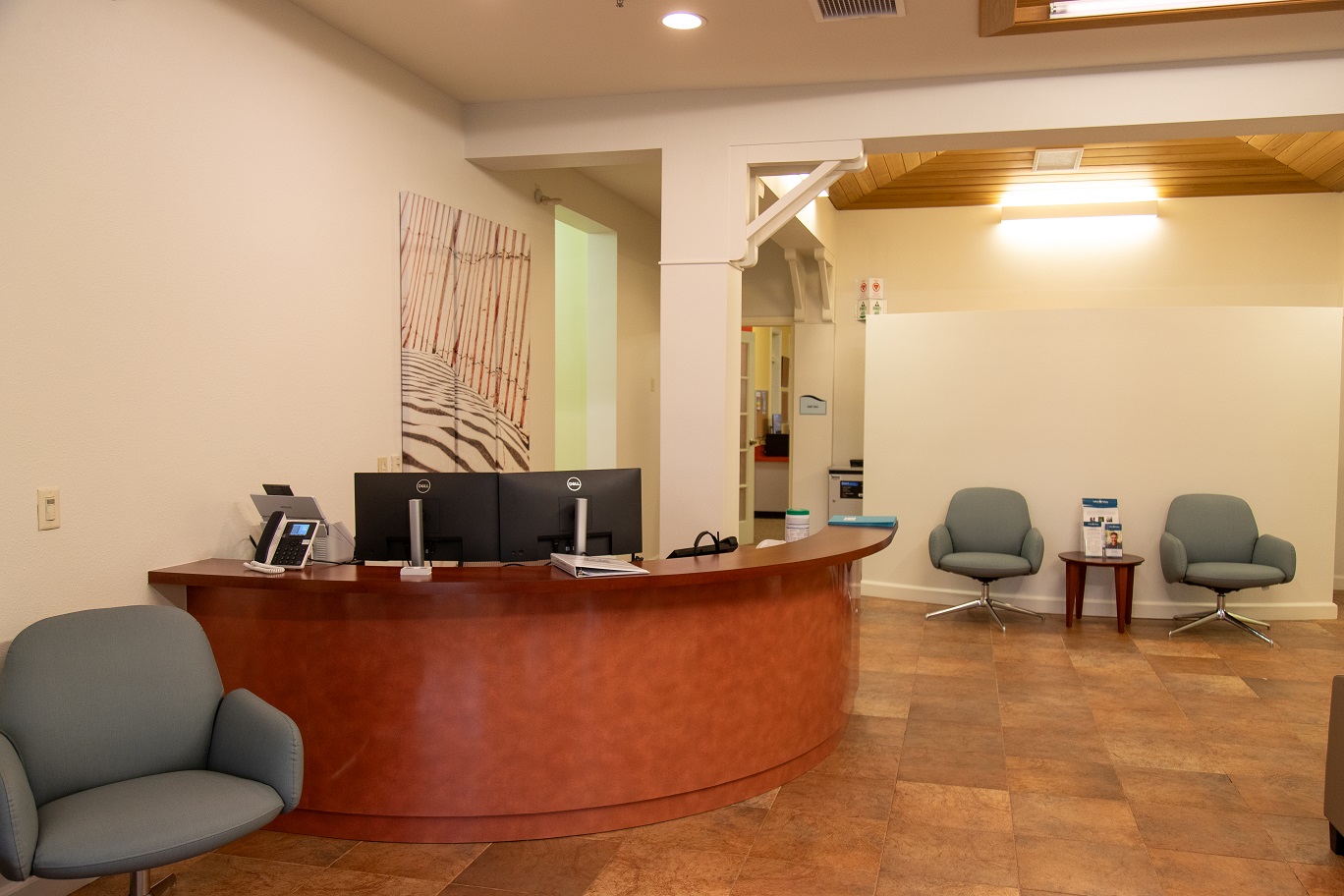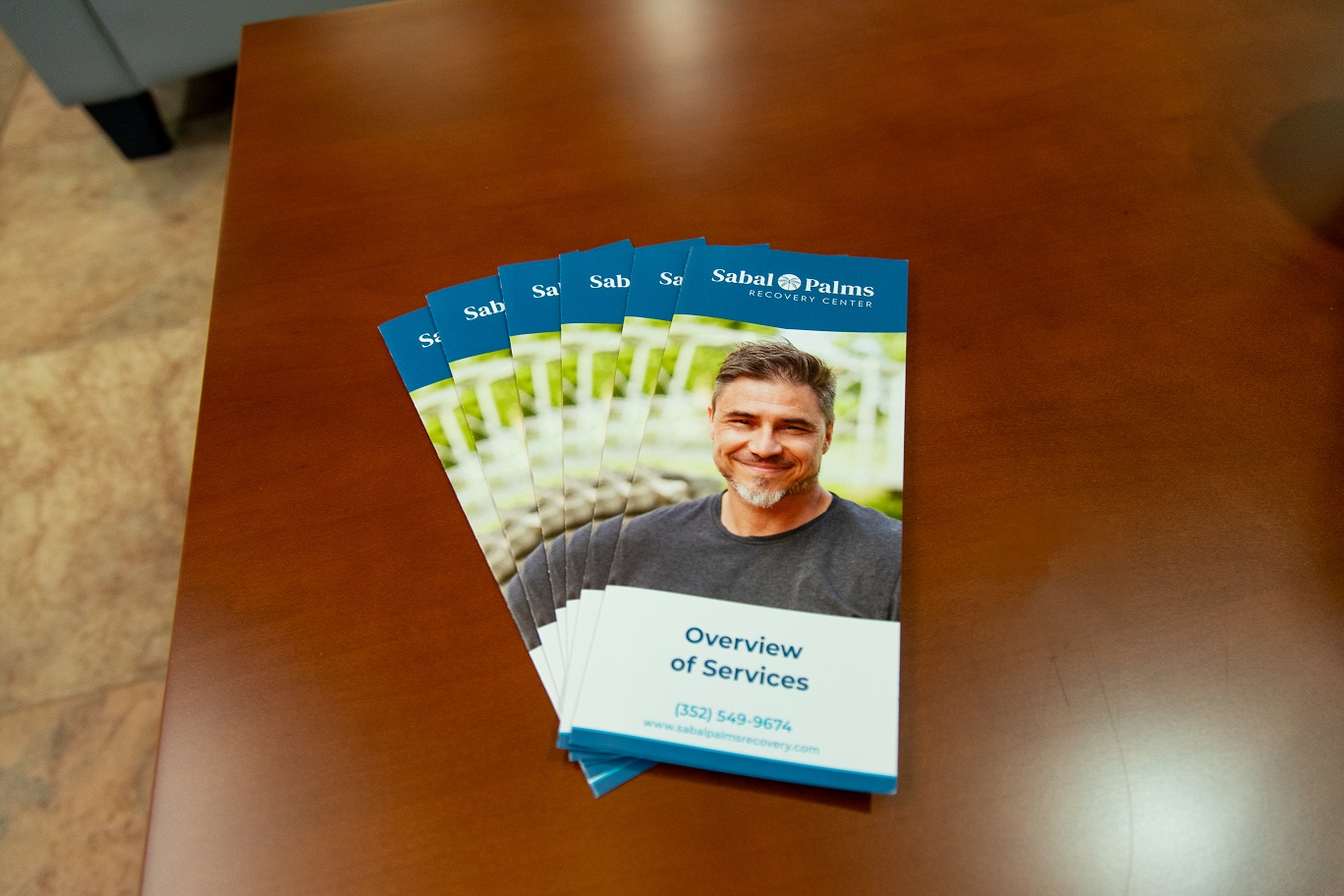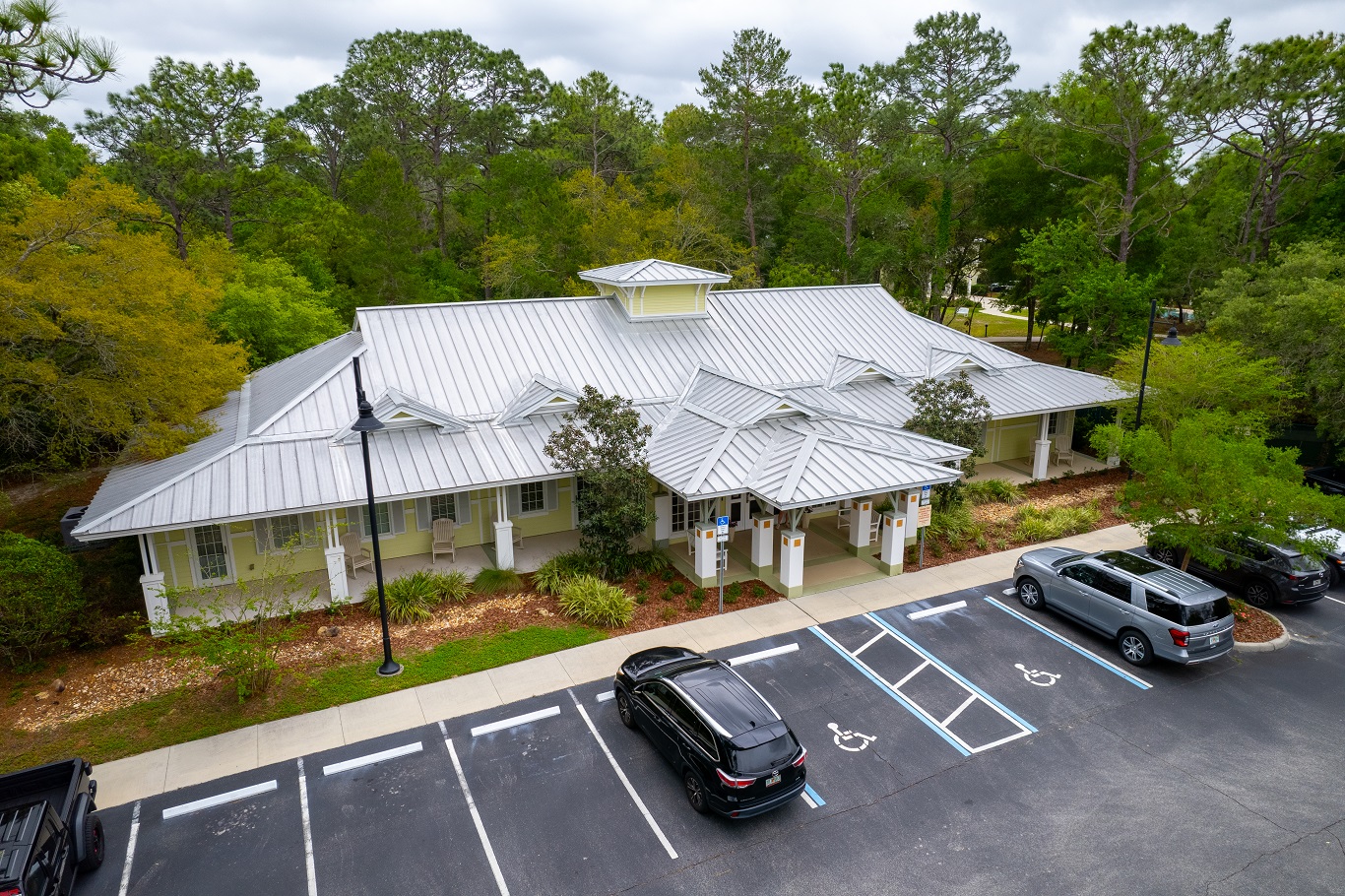If someone is struggling with an addiction, they are at risk for developing a co-occurring mental health concern like depression. The symptoms of depression can cause daily distress and make it hard to enjoy a happy and fulfilling life. However, those who have depression symptoms can find relief by receiving treatment. At Sabal Palms Recovery Center, located in Brooksville, Florida, we offer excellent customized care for adults age 18 and older who are suffering from substance use disorders and co-occurring depression.
Signs & Symptoms of Co-Occurring Depression
If someone has depression, they may feel emotionally numb, hopeless, and irritable. Many people may feel down from time to time, but depression is more than occasional sadness. Symptoms of depression make it difficult to perform daily tasks and accomplish long-term goals. People who struggle with depression can experience many physical and cognitive symptoms, such as fatigue and lack of concentration.
Signs and symptoms of depression and the severity of those symptoms can vary from person to person, which means that two people who may be suffering from depression could have very different symptoms. However, there are some common signs and symptoms that may indicate that you or a loved one is struggling with depression. The signs and symptoms of depression can include:
- Impatience or agitation
- Unexplained anger
- Hopelessness and feelings of emptiness
- Intermittent or consistent bouts of crying
- Sleeping too little (insomnia) and sleeping too much (hypersomnia)
- Difficulty focusing and making decisions
- Trouble remembering things
- Lack of interest in appearance and grooming
- Unexplained physical pain, such as headaches and backaches
- Difficulty keeping up with basic responsibilities at school or work
- Lack of interest in activities that once gave you pleasure
- Difficulty connecting with friends and partners
- Significant weight loss or weight gain
- A noticeable increase or decrease in appetite
- Daily fatigue
- Feelings of worthlessness or excessive and inappropriate guilt
- Recurrent thoughts of death, thoughts of death by suicide without a plan, or a specific plan for death by suicide
If you are struggling with an addiction and are experiencing any of these symptoms of co-occurring depression, we invite you to reach out today to the behavioral health professionals at our recovery center.
Common Causes of & Risk Factors for Co-Occurring Depression
Substance use disorders and depression have a complex relationship, and each condition can perpetuate and worsen the other. If someone has an addiction to a substance like opioids, alcohol, or benzodiazepines, it can negatively impact their brain chemistry and lead to them developing co-occurring depression or another mental health condition.
A mix of biological and environmental factors can also contribute to someone developing depression. Specifically, these factors can include traumatic events, family history, and certain personality traits. The following is a list of potential causes of and risk factors for depression:
- Stressful events: When a person suffers from extended periods of intense sadness or hopelessness after experiencing a stressful event such as a divorce or the loss of a loved one, it may be a sign that they are struggling with depression.
- Abuse: Suffering from emotional, physical, and sexual abuse can lead to the development of symptoms of depression.
- Personality traits: Certain personality traits, such as perfectionism, low self-esteem, and a tendency to overanalyze, can make some people more inclined to suffer from depression.
- Family history: If people who are in your immediate family struggle with depression, you may be more likely to have it yourself.
- Childhood trauma: Those who experienced abuse or neglect as a child may be more likely to suffer from symptoms of depression as an adult.
- Illness: People who suffer from chronic illnesses or life-threatening diseases can experience depression symptoms as they navigate changes in lifestyle, deal with pain, and, in some cases, face the fear of death.
- Loneliness: People have a biological need to connect with others. When people feel isolated and lack support, they can suffer from depression.
If you have a substance use disorder and think that you may be at a greater risk for developing co-occurring depression or are currently experiencing symptoms of co-occurring depression, it may be time to seek professional help.
Potential Effects of Untreated Co-Occurring Depression
Symptoms of co-occurring depression can be devastating and can lower a person’s self-confidence and overall well-being over time. These symptoms may also begin to negatively affect many parts of someone’s life, such as their relationships, job performance, and personal happiness. The negative effects of untreated co-occurring depression can include:
- Self-harm
- Worsening substance abuse
- Difficulty completing important or complex tasks
- Physical health risks, such as heart attacks, cardiovascular disease, and a weakened immune system
- Financial problems
- No longer taking care of personal hygiene
- Loss of control of appetite, whether eating too much or too little
- Co-occurring mental health concerns
- Social isolation
- Death by suicide
Getting help from a behavioral health professional can be an important step toward avoiding these effects and improving your well-being. By receiving supportive care at our residential facility near Tampa, you can begin the process of healing and strengthening aspects of your life that have been negatively affected by substance use and co-occurring depression.
What Happens if My Depression Symptoms Return?
Getting professional care for a substance use disorder and co-occurring depression can help alleviate the symptoms you are experiencing. Over time, however, triggers such as stress at work, negative life changes, and ongoing substance use could cause certain co-occurring depression symptoms to return.
While some people may only have one episode of depression in their lives, others may experience the return of depression symptoms even after receiving care for an addiction. Part of co-occurring depression treatment can include receiving training on how to recognize and avoid the triggers that may contribute to this, such as substance use, and how to cope with circumstances that cannot be avoided.
Sometimes, depression symptoms return with no identifiable external cause. In these cases, receiving ongoing care from a mental health professional can help you manage symptoms and appropriately cope with the effects of depression as they come up. In addition to getting care from professionals, finding peer support through local or online depression support groups can also be very helpful.
It’s very important to remember that there is nothing to be ashamed of when asking for more help along the way. Returning to a residential program for care, for example, should not be seen as a failure but instead as a sign that you are caring for your mental health and investing in your future. At Sabal Palms Recovery Center, we work with our clients to create strategies that help them address challenges that may affect the healing process. We always welcome clients to return for more care if it might benefit them.
Substance Use & Co-Occurring Depression
People who struggle with addictions may suffer from certain co-occurring disorders, which means that they have two or more behavioral health concerns at one time. Sabal Palms Recovery Center in Brooksville, Florida, provides individualized care that can help people who have been suffering from substance use concerns and co-occurring mental health disorders find lasting healing. At our facility, we provide detox and residential care for adults age 18 and older who have a primary diagnosis of an addiction to a substance such as:
- Alcohol
- Opioids
- Benzodiazepines
- Cocaine
- Stimulants
- Prescription drugs
If you are struggling with multiple behavioral health concerns at once, it is crucial to find a team of professionals who can work with you to address your individual needs. By receiving help from qualified professionals for a substance use disorder, you can identify and learn how to cope with symptoms of any co-occurring disorders like depression.
Co-Occurring Depression Statistics
People who have a substance use disorder are much more likely to have a co-occurring mental health condition, and vice versa. According to the Substance Abuse and Mental Health Services Administration’s (SAMHSA) National Survey on Drug Use and Health, 21.5 million adults age 18 and older suffered from substance use disorders and co-occurring mental health disorders in 2022.
The World Health Organization (WHO) and the Centers for Disease Control and Prevention (CDC) report the following statistics on depression:
- An estimated 5% of adults worldwide suffer from depression.
- Depression is around 50% more common among women than among men.
- More than 700,000 people who are suffering from depression die by suicide every year.
- Around 11% of physician office visits included depression as part of a patient’s medical history.
- More than 75% of people in low- and middle-income countries do not receive treatment for depression.



































